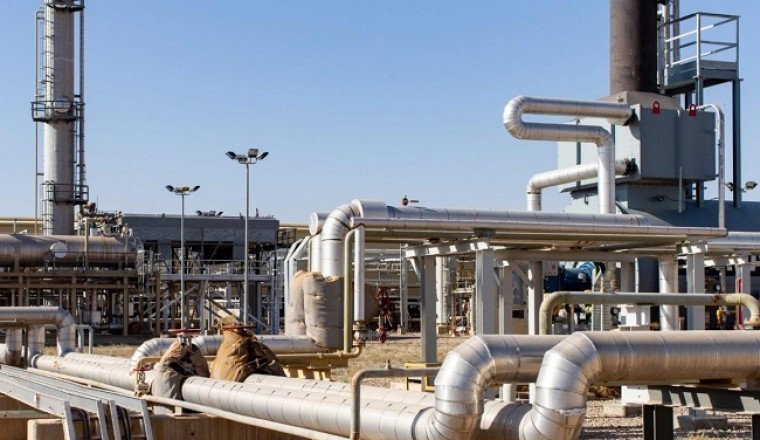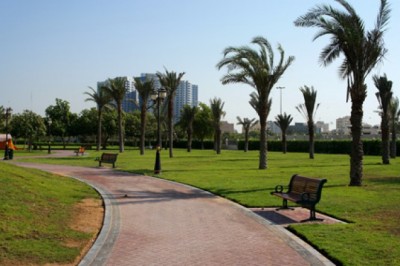
- Gas production from Khor Mor field reaches record 452 MMsscf/d, a 50% increase in production since 2018
- Expansion project underway to achieve an additional 55% increase to 700 MMscf/d by next year
Sharjah, United Arab Emirates – (AETOSWire) : Dana Gas, the Middle East’s leading publicly listed regional natural gas company, and its partner, Crescent Petroleum, the oldest private oil & gas company in the Middle East, have reported record sales gas production from their operations in the Kurdistan Region of Iraq (KRI), reaching 452 million cubic feet of gas per day (MMscf/d) at the end of 2020.
The production milestone is the culmination of numerous process improvements at the Khor Mor gas plant, including a bypass project completed in 2020 as well as a debottlenecking programme earlier in 2018. Together, the process improvements have grown the production by 50% from 305 MMscf/d in 2018.
Dana Gas and Crescent Petroleum jointly operate the Khor Mor and Chemchemal gas fields on behalf of the Pearl Petroleum consortium, supplying the gas which enables much needed electricity generation in the KRI, and also producing close to 16,000 barrels of condensate and 1,000 tonnes of LPG per day. The successful process improvements will be reinforced by the KM250 expansion project at the plant which is currently under implementation, and will increase total capacity by an additional 55% to 700 MMscf/d by April 2023.
Major works for the US$630 million KM250 expansion project resumed in April, 2021 after a delay of one year due to the COVID pandemic. The project is now on track for the new target start date of April 2023. As part of the expansion works, the Company is also preparing to drill up to five development wells, which are scheduled to commence production in March 2022.
The KM250 Gas Expansion Project is supported by a $250 million financing agreement for 7 years with the U.S. International Development Finance Corporation (DFC) which was announced in September 2021. After completion of the KM250 project, the partners also plan a further KM500 train that would raise production to almost 1 billion cubic feet per day to meet rising demand for cleaner burning natural gas and electricity generation in the Kurdistan Region and all of Iraq.
Majid Jafar, CEO of Crescent Petroleum and Board Managing Director of Dana Gas, said:
“The achievement of this production milestone underscores the progress we continue to make at Khor Mor to meet the rapidly growing demand for natural gas in the KRI. Despite the challenges the whole world has faced over the past two years, we are proud to have continued delivering uninterrupted supply of clean-burning natural gas to support the KRI economy and enable a healthy recovery. Meanwhile our major expansion plans at the Khor Mor and Chemchemal fields to target 1 billion cubic feet per day in the coming few years will enable improved services across the region for years to come.”
Dr Patrick Allman-Ward, CEO of Dana Gas, said:
“This milestone is testament to our people and their hard work making consistent production growth possible at our Khor Mor gas plant. Our continued investments since 2018, notably the Khor Mor de-bottlenecking and bypass projects, have allowed us to deliver reliable supplies of clean energy to support the KRI economy and its people, with enhanced economic and environmental benefits which will increase as we further grow production.”
Total investment by the Pearl Petroleum consortium exceeds US$2.3 billion to date, with total cumulative production of over 360 million barrels of oil equivalent (boe) of natural gas and liquids. The uninterrupted supply of gas to power plants in Erbil, Chemchemal and Bazian provides over 80% of the KRI’s power generation and has resulted in significant fuel cost savings through substitution of diesel representing both environmental and economic benefits for the Kurdistan Region and Iraq as a whole.
The displacement of diesel fuel for power generation in the KRI with gas has also enabled emissions savings of 42 million tonnes of CO2, thereby making a major contribution to reducing greenhouse gas emissions and reducing local air pollution in the region as well as supporting the transition to better energy sources to tackle global climate change.



















Facebook Conversations
Disqus Conversations